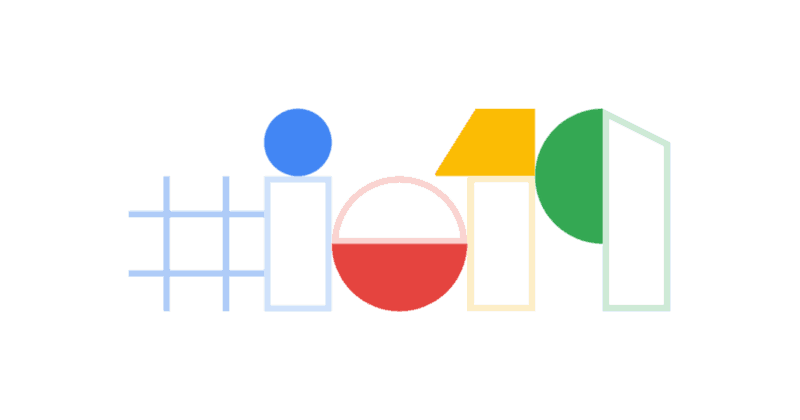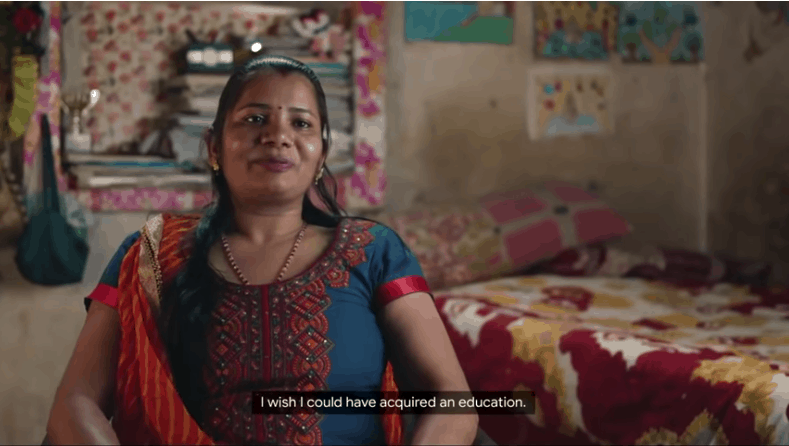Over the last couple of days I’ve been looking at the various product announcements that came out of Google I/O 2019 and there were a couple of themes that got me pretty excited about where Google can go and how that can make pretty a positive impact on millions of people.
Creating Opportunities for People… All People
I loved the Google Lens announcements from Aparna Chennapragada because the application of the technology can make such a huge difference in people’s lives, and not just the people I typically see in wearing fleece vests and sipping cold brew coffee Silicon Valley. What was most compelling to me was the transcribing / Google Translate integration that was demonstrated, especially when combined with the processing being done on device (not cloud), and being accessible to extremely low-end ($35) devices. Visual translation was always a very cool feature and, when I was trying to figure out menus in Paris, I was happy to have the privilege of a high-end phone and data plan. Making this technology widely accessible enables breaking down barriers created by illiteracy, assisting the visually impaired, and helping human interactions in regions with language borders.
Google also announced Live Caption, where pretty much every form of video (including third party apps and live chat) can have real-time subtitles. This is also done on-device, and works offline, so it can be applied to live events, like watching a speaker at a conference. A shoutout to my friend and former colleague KR Liu for her work with Google on this project, that makes the world far more accessible to people with hearing challenges.
Also notable, Google’s Project Euphonia is making speech recognition more accessible to people with impaired speech.
Movement Towards Device vs. Cloud
The “on device” and “offline” features I mentioned (and were part of other announcements like Google Assistant improvements) are important because of the implications they have in making the technology available to everyone, and also because of the personal privacy that capability will enable.
Of course, my data, Google’s access to it, and personal privacy is a much larger, complicated conversation… for now I am going to focus on possibilities, not challenges.
For years there has been a move for all aspects of people’s lives to be captured and collected in the cloud. There are many reasons this may have been necessary, from correlating data to make it useful, raw computer processing power requirements, over-reaching policies, and business models requiring all the things to win. Once in the cloud, personal information can be used for purposes never imagined by the consumer, including detailed profiling, sharing with third parties, accidentally leaking to malicious parties, revealing personal content, and various other exploitations that can negatively impact the consumer.
As the processing stays on your device and does not require transferring data off of your device, it enables products that can still provide incredible benefits while also being respectful of customer privacy. This is exciting as there are product opportunities in areas like personal health (physical and mental) that will likely require deep trust and protection of consumer information to gain wide acceptance and benefit the most people.
Personal Assistant of My Dreams
And something I am more selfishly excited about…
For several years I wished that all of the products in Google would integrate with each other and eliminate almost every manual step I have to organizing my day. I am going to side-step the discussion about how much data a company has about an individual and say that I intentionally choose to trust my information with two companies (Google being one), because of the value I get from them. I use Google to organize most aspects of my life, from email communication to coordinating my kid’s schedules, video conferencing, travel planning, finding my way around anywhere, and almost every form of document. As a result, all the parts of Google know a lot about me. But still, when I send an email to setup a meeting, I usually need to manually add that to my calendar and then I also need to add in the travel details (I frequently take trains instead of driving)… it’s a couple of extra minutes that I could be spending on better things, or just looking at pictures of cats on the Internet.
With the progress of Google Assistant and Google Duplex, I am seeing a path where administrivia is eliminated, where email, text messages, phone calls and video conferencing can also provide inputs that guide this assistant into organizing my life behind the scenes… Action items discussed in a Hangout can automatically result in a summary document, a coordinated follow-up lunch, optimal travel details, and a task list.
There is an obvious contradiction between my excitement for the announcements that emphasize better human outcomes and my “let Google know all the things” excitement over a personal assistant, but again, this is about my personal, intentional choice to share data vs. products that mandate supplying personal data, often far in excess of what is necessary to deliver the product or service.
There were some other “that’s cool” announcements, and I’ll probably be buying a Pixel 3a, which seems like a great deal for the feature set, but overall I’m more excited about the direction than the specific products showcased.


